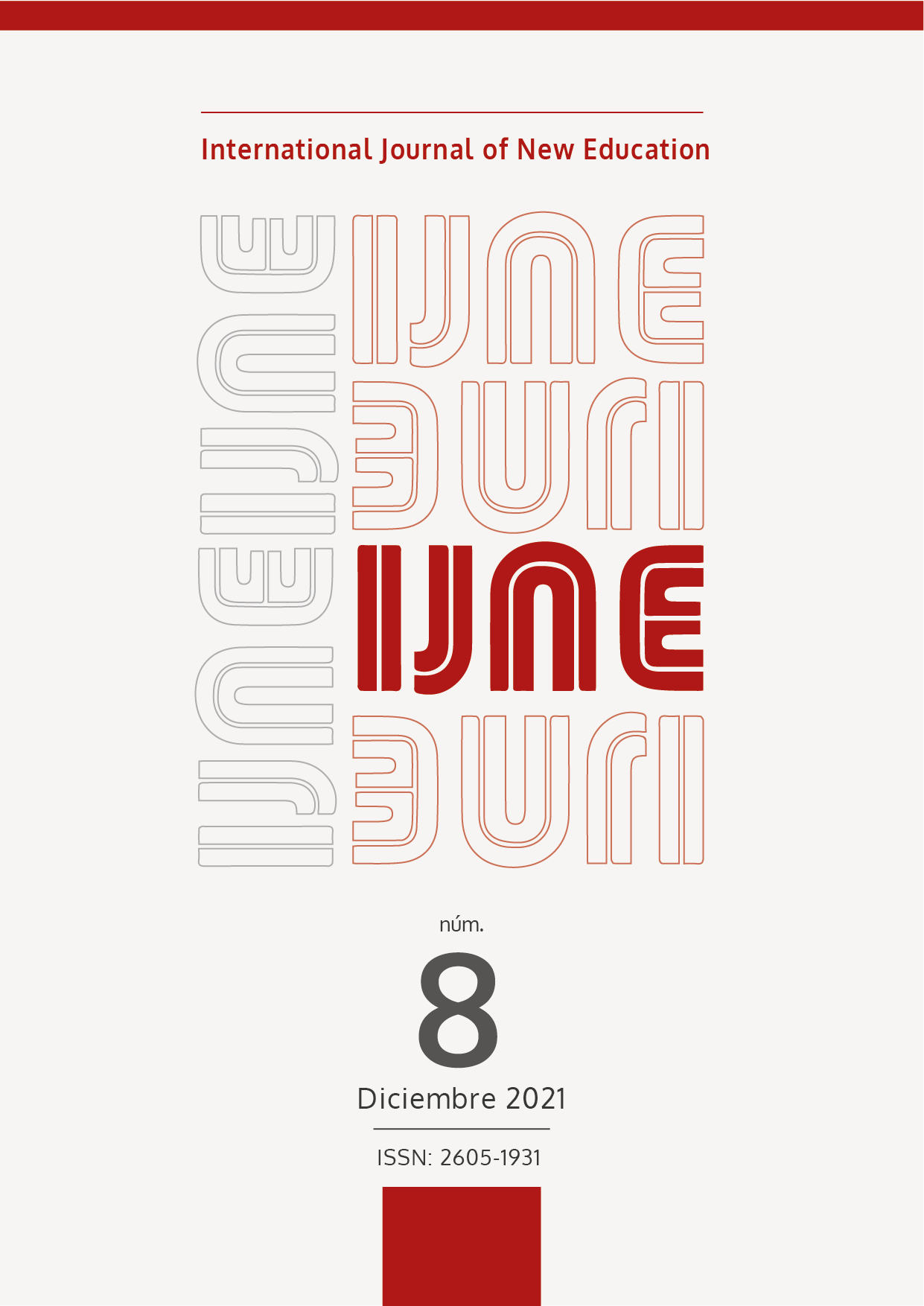Educational immersion in e-sport. From the playful context to the educational world
DOI:
https://doi.org/10.24310/IJNE.8.2021.12900Keywords:
High schools, School failure, Motivation, Teacher behavior, e-sports, DropoutAbstract
The research tries to know to what extent the influence of teachers who taught while studying high school and / or secondary education has on students who practice e-sports. The sample collected are players who compete in FIFA21 formed by 30 people, a non-parametric analysis of a sample, a linear regression, a correlation, descriptive studies and ANOVA of a factor have been used. The following variables are used, the sample of respect and fair treatment with respect to all the students, responded with interest to the interventions, sample of respect and fair treatment, organization and preparation of the classes, the explanations related to examples, the clarity and precision of the transmission of contents, the degree of concordance between what was explained with the exams, the days of competition, the hours outside the official training, the relationship with the captains, the hours playing other modalities and the hours of training could influence the school dropout.
Downloads
Metrics
Publication Facts
Reviewer profiles N/A
Author statements
Indexed in
-
—
- Academic society
- N/A
- Publisher
- Universidad de Málaga
References
Albert Bandura. (2020). Teoría cognitiva social de la comunicación de masas: Psicología de los medios: Vol 3, No 3. 2001. https://www.tandfonline.com/doi/abs/10.1207/S1532785XMEP0303_03
Arís Redó, N. (2017). El Síndrome de Burnout en los docentes. Electronic Journal of Research in Education Psychology, 7(18), Article 18. https://doi.org/10.25115/ejrep.v7i18.1324
Ariza-Hernández, M. L. (2017). Influencia de la inteligencia emocional y los afectos en la relación maestro-alumno, en el rendimiento académico de estudiantes de educación superior. Educación y Educadores, 20(2), 193-210. https://doi.org/10.5294/edu.2017.20.2.2
Balladares, P., & Bersabeh, M. (2018). Relación entre clima social familiar y el rendimiento académico de los estudiantes del cuarto año de educación secundaria de la Institución Educativa 7 de enero Corrales—Tumbes, 2015. Universidad Católica Los Ángeles de Chimbote. http://repositorio.uladech.edu.pe/handle/123456789/2145
Cava, M. J., & Musitu, G. (2000). Efectos Directos e Indirectos de la Autoestima en el Animo Depresivo. REVISTA MEXICANA DE PSICOLOGIA, 11.
Chen, Y. (2006). Marketing Innovation. Journal of Economics & Management Strategy, 15(1), 101-123. https://doi.org/10.1111/j.1530-9134.2006.00093.x
Galanti, A. M. (2020). Cómo generar ambientes positivos y motivantes en el aula. Reflexión Académica en Diseño y Comunicación NoXXIX, Año XVII, Vol. 29, Noviembre 2016, Buenos Aires, Argentina, 96-99.
Humphreys, G. (2019). Sharpening the focus on gaming disorder. Bulletin of the World Health Organization, 97(6), 382-383. https://doi.org/10.2471/BLT.19.020619
INE. (2020). Instituto Nacional de estadística. https://www.ine.es/ss/Satellite?c=INESeccion_C&p=1254735110672&pagename=ProductosYServicios%2FPYSLayout&cid=1259925480602&L=0
Jiménez, S. Y., Rubio, E. L., & Navarro, R. (2016). El apoyo social como factor de protección ante el cyberbullying. La violencia en las relaciones humanas: contextos y entornos protectores del menor, 2016, ISBN 978-84-9044-237-1, págs. 93-114, 93-114. https://dialnet.unirioja.es/servlet/articulo?codigo=6078286
Llamas, C. J. (2015). Perfil profesional de los instructores de clases colectivas en España. AGON: International Journal of Sport Sciences, 5(2), 114-125.
Marcelo, A., & Luis, J. (2019). Inteligencia Emocional Y Aprendizaje En El Área De Formación Ciudadana Y Cívica En Una Institución Educativa De Santiago, Ica. Repositorio Institucional - UCV. http://repositorio.ucv.edu.pe/handle/UCV/38279
Martinez, J. D. B., Ruiz, L. F. P., & Hidalgo, E. A. R. (s. f.). Adicción a los Videojuegos. 12.
Rojas-Bermúdez, J. G. (2017). Teoría y técnica sicodramáticas. Punto Rojo Libros.
Salguero, R. T. (2009). Efectos psicosociales de los videojuegos. . . ISSN, 16.
Sánchez, A., & Alexander, R. (s. f.). La educación en mediación escolar como escenario de formación ciudadana. 8.
Sancho Álvarez, C., & Grau Vidal, R. (2013). Diseño y validación de un cuestionario sobre fracaso escolar en alumnado de educación secundaria de un centro de formación de personas adultas. Actualidades Investigativas en Educación, 13(1), 267-291.
Serrano Martínez, L., & Soler Guillén, Á. (2015). La formación y el empleo de los jóvenes españoles. Fundación BBVA. http://public.ebookcentral.proquest.com/choice/publicfullrecord.aspx?p=4422115
Smetana, J. G., Schlagman, N., & Adams, P. W. (1993). Preschool Children’s Judgments about Hypothetical and Actual Transgressions. Child Development, 64(1), 202-214. https://doi.org/10.1111/j.1467-8624.1993.tb02904.x
Teruel Blanco, S. (2017). Estrategia de actividades físicas y recreativas para la transformación conductual en niños de 10 y 11 años que no cumplen los deberes escolares en la comunidad Barrio Obrero. https://repositorio.uho.edu.cu/jspui/handle/uho/2985
Vallejos, M., & Capa, W. (2010). Video juegos: Adicción y factores predictivos. Avances en Psicología, 18(1), 103-110. https://doi.org/10.33539/avpsicol.2010.n.18.1924
Velasco, C., & Alejandra, T. (2019). Los videojuegos y su repercusión en el comportamiento de adolescente de 15 años. http://dspace.utb.edu.ec/handle/49000/6521
VFO - NORMATIVA. (2020, marzo 16). http://www.vfospain.com/psn/normativa
VIDEOJUEGOS Y EDUCACIÓN. (2020, marzo 16). https://campus.usal.es/~teoriaeducacion/rev_numero_02/n2_art_etxeberria.htm
Downloads
Published
How to Cite
Issue
Section
License
Las obras se publican en edición electrónica bajo una licencia Creative Commons Reconocimiento-NoComercial 4.0 España: se pueden copiar, usar, difundir, transmitir y exponer públicamente, siempre que:
a) Se cite la autoría y la fuente original de su publicación (revista,
editorial y URL de la obra.
b) No se usen para fines comerciales.
c) Se mencione la existencia y especificaciones de esta licencia de uso.
Será responsabilidad exclusiva de los autores obtener los permisos necesarios de las imágenes que estén sujetas a derechos de autor.










16.png)
